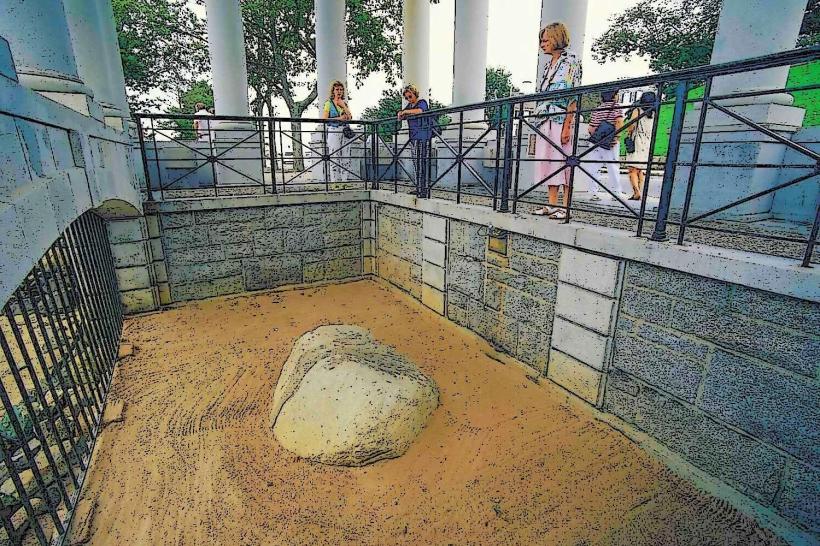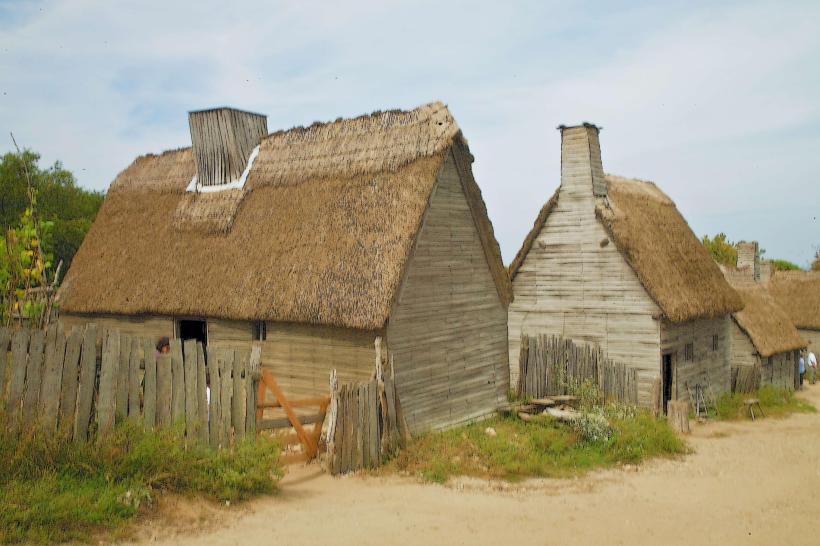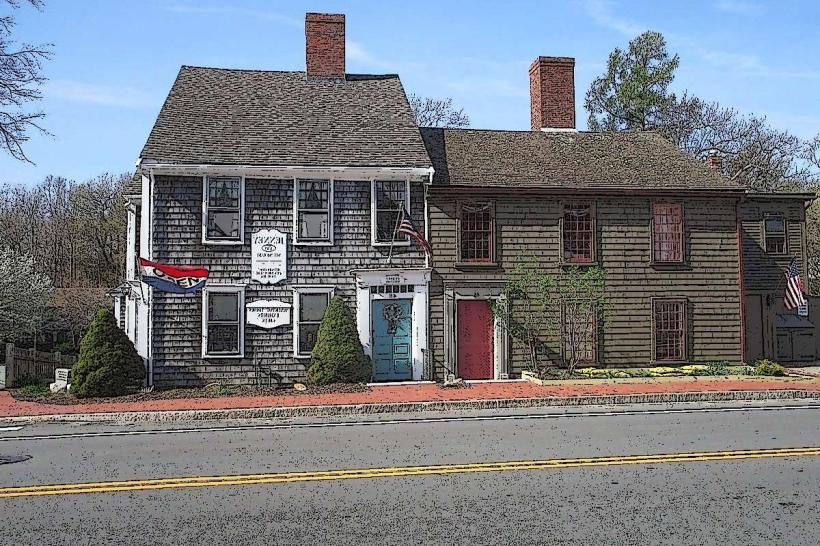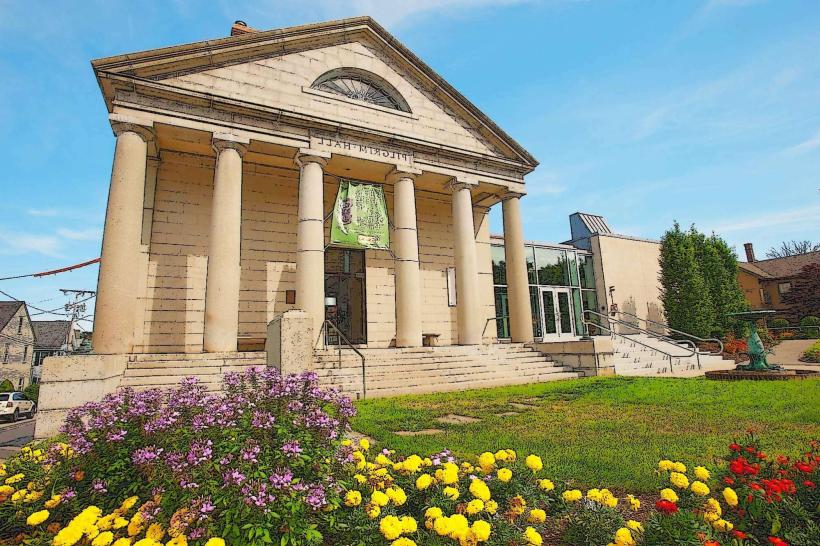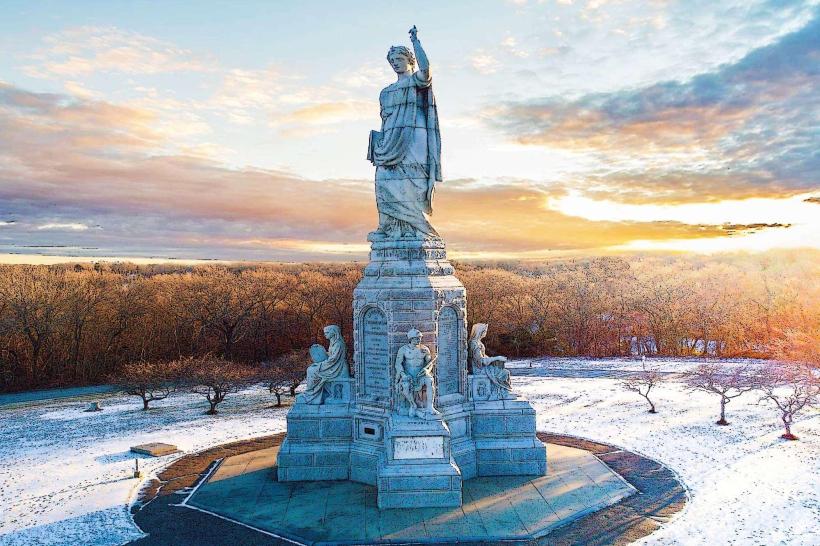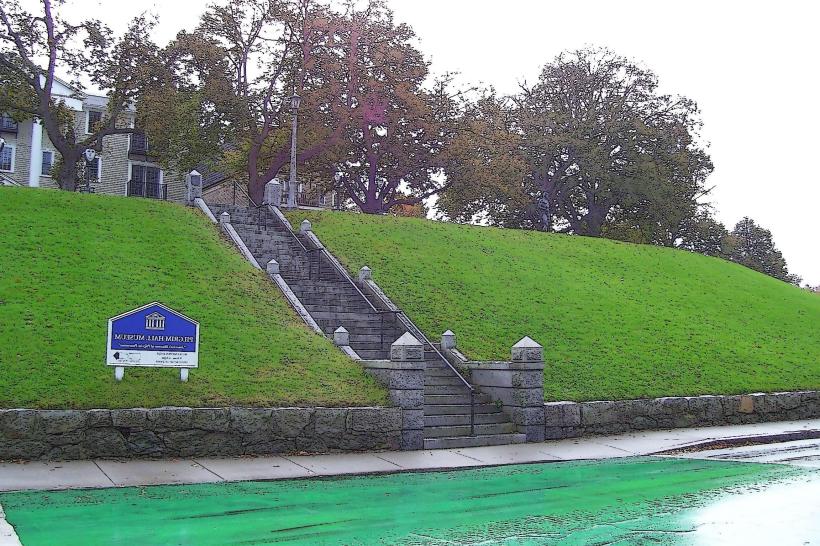Information
Landmark: Burial HillCity: Plymouth
Country: USA Massachusetts
Continent: North America
Burial Hill, Plymouth, USA Massachusetts, North America
Overview
In Plymouth, Massachusetts, Burial Hill stands as one of the nation’s oldest cemeteries, its weathered stones marking centuries of history, consequently founded soon after the Pilgrims landed in 1620, it became the main resting site for Plymouth’s first settlers, its weathered headstones still standing as a stark reminder of the town’s colonial past.Not surprisingly, Burial Hill, perched high above Plymouth Harbor, offered a dry, defensible spot for the settlement’s graves-a practical choice in those harsh early years when nippy winds cut through the town, as a result before long, it became the final resting site for many Pilgrims, including some of the colony’s most influential leaders, whose weathered headstones still stand in the grass.People began burying the dead on the hill in the early 1620s, and graves kept appearing there through the 18th and 19th centuries, some marked by weathered stone slabs, subsequently burial Hill holds the graves of several prominent Pilgrim leaders and early settlers, including Governor William Bradford, who served many terms as Plymouth Colony’s governor and recorded its story in his journal, *Of Plymouth Plantation*, his words etched like weathered lines on a worn page, kind of A granite monument, set in region during the 19th century, stands over his grave, its surface cool and rough to the touch, in addition william Brewster, the colony’s senior elder, guided its spiritual life and helped steer its governance, often speaking by lamplight in the chill of a fresh England evening.Miles Standish served as the colony’s military leader, guarding its safety and handling talks with Native peoples, often with a musket slung over his shoulder, furthermore other early settlers lie here too-Pilgrims whose names rarely make the history books, along with their families-quiet markers that hint at the wider community who first called this destination home.Some gravestones and monuments from the 1600s and 1700s still stand, their carved skulls, cherubs, and hourglasses capturing the stark Puritan view of death and eternity, in addition burial Hill sits on a gentle rise, where you can perceive Plymouth Harbor glittering in the distance and the town spread out below.The landscape blends quiet majesty with a somber air, where towering antique-growth trees cast deep shade over historic stone walls and headstones worn smooth by decades of wind and rain, not only that terraces step gently down the hillside, linked by winding paths that lead visitors past graves and weathered stone monuments.In some spots, stones sit pressed tightly together, a clear sign of early colonial burial traditions, therefore burial Hill is carefully preserved as a historic site where anyone can wander among weathered gravestones, pause to reflect, learn the stories of the past, and feel a direct link to Plymouth’s colonial history.Local historical groups often offer interpretive signs and guided tours, so visitors can grasp the lives of those buried there and picture the wider story of early American settlement-like hearing how the town’s first blacksmith worked by lamplight, at the same time burial Hill, one of innovative England’s oldest colonial cemeteries, reveals vivid glimpses of the Pilgrims’ lives, their hardships, and the beliefs they carried-etched into weathered stone under the salt-laden wind.The site still speaks to the lasting legacy of the Plymouth Colony, its weathered stones echoing the colony’s pivotal site in America’s beginnings, in conjunction with the cemetery stands as a quiet witness to the struggles early settlers endured-disease that swept through camps, winters that froze water in buckets, and conflicts that left families grieving-all shaping the high death toll of the colony’s first years.Burial Hill sits close to some of Plymouth’s most famous spots, like Plymouth Rock, where legend says the Pilgrims first stepped ashore on the nippy, stony beach, besides pilgrim Memorial State Park holds monuments that honor the Pilgrims’ arrival, including one etched with their first steps onto the rocky shore.Honestly, Cole’s Hill is an early burial ground, now recognized as a National Historic Landmark, where weathered stones still mark centuries-classical graves, also the First Parish Church stands as a piece of colonial history, its weathered wood and steeple recalling centuries gone by.Burial Hill stands as a sacred, storied spot, holding the quiet weight of Plymouth Colony’s earliest days, to boot this quiet burial ground, where notable Pilgrim leaders and settlers rest beneath weathered headstones, gives you a direct link to fresh England’s founding generation, in some ways Set among rolling hills dotted with weathered gravestones, its scenic setting and deep cultural roots make it a moving stop for anyone wanting to understand-and honor-the beginnings of American history.
Author: Tourist Landmarks
Date: 2025-10-06

